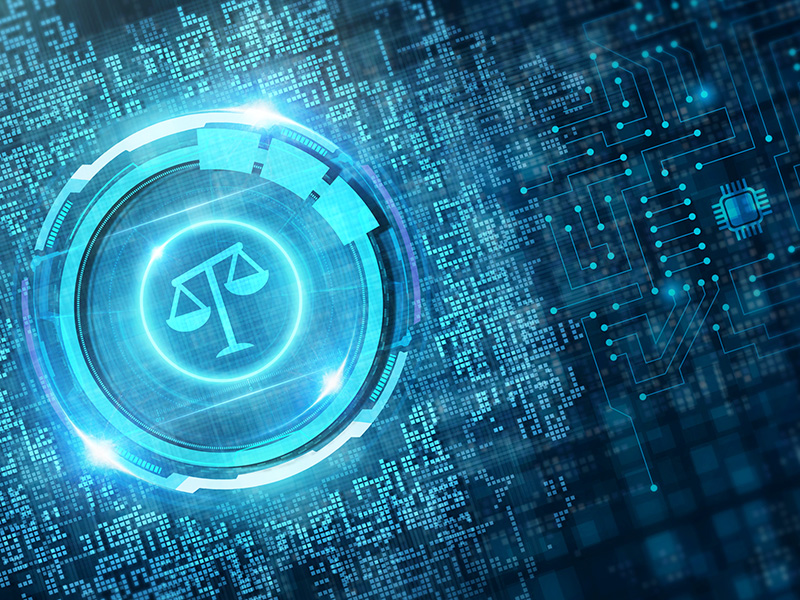
Photo by 21AERIALS on iStock
Authors
-

Associate Director, Technology Sectors, BSR
-

Manager, Technology Sectors, BSR
-

Director, Technology and Human Rights, BSR
-

Associate Director, Human Rights, BSR
-

Senior Advisor, BSR
Key Points
- The Lantern Program is a framework for sharing information related to harmful threats for the purpose of combating OCSEA and strengthening how companies enforce their child safety policies.
- However, signal sharing between companies may also be associated with human rights risks such as freedom of expression, privacy, or non-discrimination.
- BSR’s latest report makes 19 recommendations for how these human rights impacts can be mitigated and enhance existing efforts by the Tech Coalition.
How should companies respond when actions undertaken to address known and severe adverse human rights impacts themselves give rise to new human rights risks? BSR’s human rights impact assessment of the Tech Coalition’s Lantern Program, which we are publishing today, provides an excellent example of how companies can address this challenge in practice.
Online child sexual exploitation and abuse (“OCSEA”) is one of the most severe human rights impacts in the technology industry today. In 2022, the National Center for Missing and Exploited Children received over 32 million reports containing approximately 88 million suspected child sexual exploitation images and videos, while the NSPCC reports an 82% rise in online grooming crimes against children in the last five years. OCSEA often results in serious adverse physical, emotional, and psychological impacts on victims and survivors, and is linked with higher risk of self-harm and suicidal ideation.
The Lantern Program is a framework for sharing information related to harmful threats (known as “signals”) for the purpose of combating OCSEA and strengthening how companies enforce their child safety policies. The Program seeks to facilitate cross-industry knowledge sharing, proactive detection of OCSEA, and industry-wide moderation of known or suspected child sexual abuse material.
The goal of signal sharing is to supplement companies’ individual efforts by providing information that helps companies identify cases of OCSEA or offenders who may be operating across different platforms. Examples of signals include hashes of known child sexual abuse material (CSAM), URLs, common keywords or phrases, text fields, search terms, or basic subscriber and user information that may indicate actual or potential cases of OCSEA.
However, signal sharing between companies may be associated with human rights risks such as freedom of expression (e.g., through over-moderation of content, including content generated by children), privacy (e.g., through overbroad data sharing or monitoring), or nondiscrimination (e.g., by taking action against individuals from communities at greater risk of being wrongly accused of OCSEA).
While these risks exist at individual companies today, their severity and likelihood may increase with the cross-platform nature of the Lantern Program. For example, signal sharing may increase the likelihood of erroneous content removal or blocking of user accounts because signals are further decontextualized when shared across platforms.
For this reason, the Tech Coalition (an alliance of global tech companies who are working together to combat child sexual exploitation and abuse online) commissioned BSR to undertake a human rights impact assessment of the Lantern Program before its launch. The objective was to identify the potential adverse human rights impacts of the Lantern Program and recommend appropriate action for the Tech Coalition and participants of the program to address these impacts.
Our assessment concludes that the increasingly cross-platform nature of OCSEA necessitates a collaborative effort and that the multi-company approach underpinning the Lantern Program has the potential to fill a key gap in the industry’s approach to child safety and protection. It will help participating companies better address some of the most severe adverse human rights impacts associated with their platforms.
Further, we conclude that the Tech Coalition has already made significant efforts to prevent, mitigate, and address the human rights risks associated with the Lantern Program. This includes governance mechanisms to ensure participants uphold the commitments they make to participate in the program, a quality assurance plan to ensure that signals shared are applicable and relevant to OCSEA violations and abuse, and parameters around what data can be included in the Lantern database.
In the report, we identify eight categories of human rights that may be adversely impacted and make 19 recommendations to supplement and enhance the Tech Coalition’s existing efforts, covering:
-
Governance and Participant Engagement, such as supporting smaller participants to be able to comply with requirements and establishing a due diligence process for evaluating new members.
-
Transparency and Stakeholder Engagement, such as facilitating an annual dialogue with key stakeholders where participants can share and discuss their use of the Lantern Program and enabling third-party audits and trusted researcher access to the database.
-
Policy and Process, such as taking a human rights-based approach to responding to potential government requests for data.
-
Technical Measures, such as implementing technical barriers to minimize data collection, storage, and sharing.
The Tech Coalition has published a response describing how they plan to address our recommendations—they have already implemented nine recommendations, and they are pursuing or investigating the rest.
The UN Guiding Principles on Business and Human Rights make clear that companies should address adverse human rights impacts with which they are involved and increase their leverage to do this effectively by collaborating with other actors. The Lantern Program achieves both objectives.
However, the reality in the technology industry is that many human rights can be in tension with each other and that actions to address some adverse impacts may bring new human rights risks.
We warmly welcome the nuanced, thoughtful, and sophisticated way that the Tech Coalition has addressed this challenge, and hope that this assessment both informs progress toward combating OCSEA in a rights-respecting way and inspires other multi-company and multi-stakeholder efforts to consider similar initiatives.
BSR’s latest sustainability insights and events straight to your inbox.
Topics
Let’s talk about how BSR can help you to transform your business and achieve your sustainability goals.







